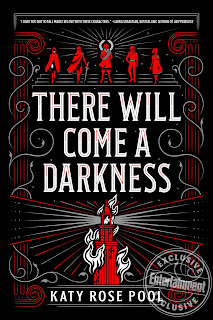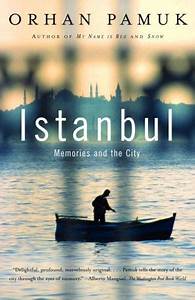"When Tess Durbeyfield is driven by family poverty to claim kinship with the wealthy D'Urbervilles and seek a portion of their family fortune, meeting her 'cousin' Alec proves to be her downfall. A very different man, Angel Clare, seems to offer her love and salvation, but Tess must choose whether to reveal her past or remain silent in the hope of a peaceful future."I adore Hardy's writing. His prose and writing style is understatedly sublime, and there where many stunning passages about nature, religion and the human condition that left me breathless.
However I take exception to Hardy's characterisation, plot and the widely accepted reading of this book.
In my humble opinion, I believe this book has been fundamentally misunderstood by English Literature curriculums everywhere. They often say that Alec represents Tess's debasement, Satan, and Angel her salvation, making many biblical allusions to Original sin and Tess being Eve. I don't see that at all. Alec does not seduce Tess, she never gives into temptation. He rapes her forcefully even though she refused his advances repeatedly. Tess is never debased other than on the eyes of society.
Angel, the man supposed to be her salvation and so oh so subtly named, is an idiot. He doesn't love Tess for Tess, he barely knows her. Rather he loves the idea of her that he has conjured up for her, the biblical virginal Mary figure of his imagining. (I am sorry but what kind of pervert refers to a women they have just met as virginal? Even in their own thoughts?)His concept of a purer, less worldly milkmaid is so false and his romanticisation of the lower working classes was bordering of fetishist. This clash between his Christian idealised pastoral concept with the reality of the more pagan, more earthy workers was telling.
I also found the emphasis on Tess's copying of Angel's ideas, attitudes, even speech and movement horrifying. Maybe a link between the easy acceptance of religious doctrine and how it abolishes free thought? Her acceptance of Angel's abandonment is also judged by Hardy as foolhardy. She should have pushed harder, but her own values have so demonised her in her own mind that she now views herself as unworthy of .. well pretty much everything. Hardy having Angel admit to having sex a few lines prior to Tess's confession of rape further highlighted the hypocrisy. Angel gave into temptation, if we carry on with the biblical allegory, he sinned and sinned willingly. Tess however, a women forcibly raped, someone who never gave into Alec, is seen as more "dirty", more sinful? I call BULLSHIT.
I can understand the biblical allusions that have been read into the book but I found, while reading, this book to be, rather, a subtle critic of religion. Tess, through her and her societies religious beliefs is demonised for something completely out of her control, something she should be pitied for. Hardy makes a point of showing that the farm workers, ostensibly more "pagan" didn't hold Tess as accountable as the otherwise more civilised, read Christian, upper classes.
Both Alec and Angel represent a dominating power, a wish to mould Tess in their own image. To own her completely, both physically and morally. Tess is a blank slate for them to project anything they want onto. Alec at least was able to see his own hypocrisy, he immediately drops his new biblical image after realising that he still lusts after Tess. Angel is not so honest with himself.
Tess's eventual murder of Alec felt more induced by shame and a feeling of entrapment, unnecessary shame as Hardy takes point in assuring us. Her violence could be read, not to stem from a debauchment of the soul but rather a very Christian shame that has been forced on her by Angel.
Sorry for the very long rant. I have no idea if Hardy wished his book to be read in this way, but this is how I interpreted it.
Age Rating 15+. Some serious topics are covered like rape, poverty, abandonment and death of a child.














